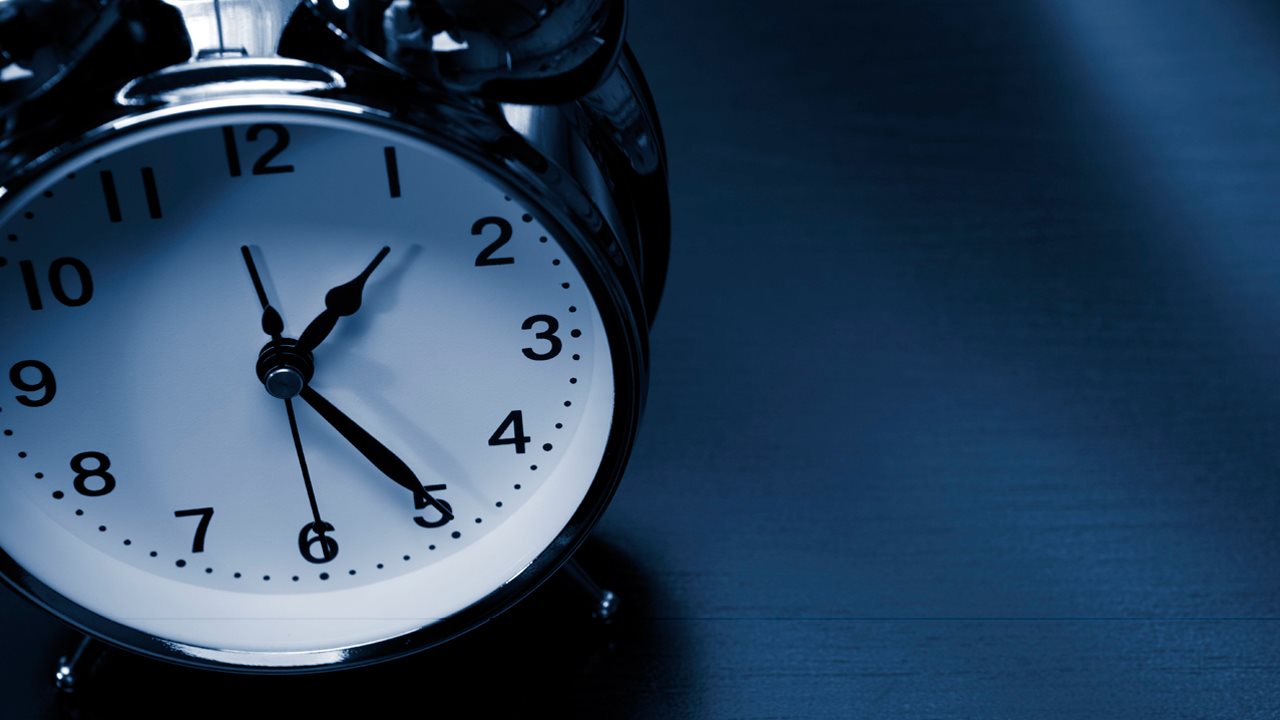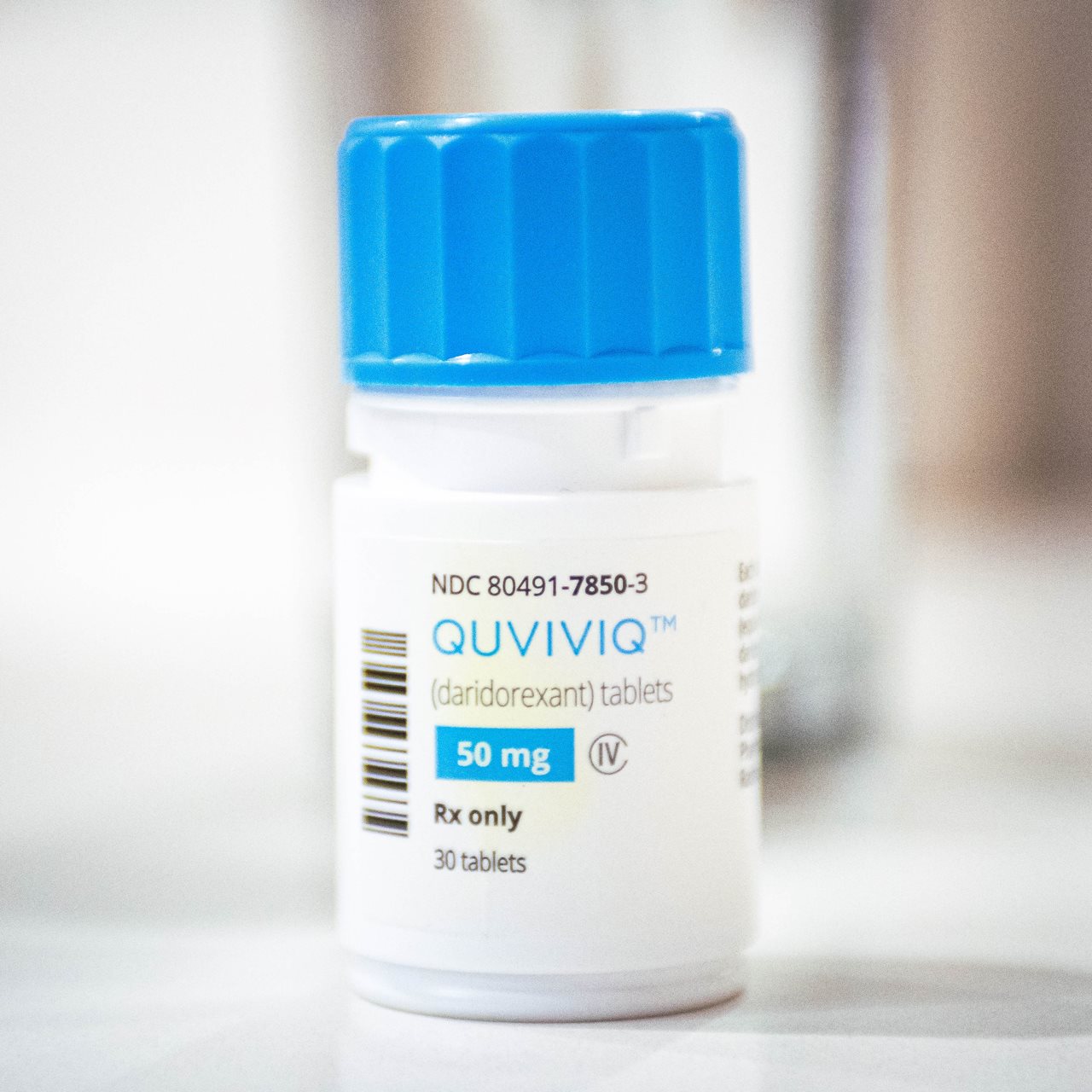(BPT) - Sponsored by Idorsia Pharmaceuticals
Insomnia, or struggling to fall or stay asleep, affects over 25 million US adults.[i] [ii] The impact of insomnia can be debilitating-it is linked to daytime impairments as well as being associated with an increased risk of cardiovascular diseases.[iii] For those suffering from insomnia, there are certain things to keep in mind on the journey to more sleep. Read on for five tips to build a better sleep routine living with insomnia.
Create and Stick to a Sleep Routine
Try to go to bed and wake up at the same time each day. Yes, that means weekends and vacations, too.[iv] In addition, try to keep your bedroom cool, quiet and relaxing.[iv]
Bottom Line: Maintaining a comfortable and consistent sleeping environment is a key part of addressing insomnia.

Understand the Causes of Insomnia
Insomnia can stem from a variety of factors, including family history, stressful life circumstances, mental health conditions and poor sleep habits.[iii] Overactive wake signaling, one of the biological causes of insomnia, may also be to blame.[v]
Bottom Line: Knowing what may be causing your insomnia can help as you work with your doctor to understand your options for treatment.

Start a Dialogue with Your Doctor
Maintain an open and honest conversation with your healthcare provider about your insomnia. Consider keeping a sleep journal with your daily experiences and symptoms, so you can give an accurate history of your sleep struggles to your healthcare provider.
Bottom Line: Being honest and detailed about what you are experiencing can help your healthcare provider create a treatment plan that fits your needs.

Learn About Prescription Options
Consider speaking with your doctor about prescription options that may work to help treat your insomnia, such as QUVIVIQ® (daridorexant) CIV [vi], a prescription medication for adults who have trouble falling asleep or staying asleep (insomnia). Designed for once-nightly use, QUVIVIQ has been clinically proven to help adults with insomnia get more sleep.* Unlike some other insomnia medications, QUVIVIQ is thought to work by turning down overactive wake signals, one of the biological causes of insomnia.[vii] See important safety information for QUVIVIQ below.
* In clinical studies, results measured at months 1 and 3
Bottom Line: Speak with your doctor about creating a treatment plan that is right for you.

You Are Not Alone
Insomnia can feel isolating, but there are others out there who are going through similar experiences. Kevin, a school IT director, husband and father of five, is one of those people. He struggled to get the sleep he needed for the past decade - having to sneak away for midday naps and cut family time short to try to get more sleep. He tried a variety of prescription and over-the-counter insomnia medications but wasn't able to find one that worked for him, until his doctor prescribed him QUVIVIQ. His doctor discussed QUVIVIQ's safety profile with him and told him it may cause headaches or sleepiness during the day and to avoid driving or doing other activities until he feels fully awake. After a few weeks of taking QUVIVIQ once nightly, Kevin started sleeping better more consistently for the first time in years. 'Now that I'm getting more sleep at night, I'm feeling less tired throughout the day, and I can get back to the things that I love to do,' Kevin said. Individual results may vary.
Bottom Line: Hearing from others experiencing insomnia can help you feel less alone. Check out more sleep stories from real people here: https://www.quviviq.com/sleep-stories/
What is QUVIVIQ (daridorexant)?
QUVIVIQ is a prescription medicine for adults who have trouble falling asleep or staying asleep (insomnia).
Important Safety Information
Do not take QUVIVIQ if you fall asleep often at unexpected times (narcolepsy) or if you are allergic to QUVIVIQ or any of its ingredients.
QUVIVIQ may cause serious side effects, including:
- Decreased awareness and alertness. The morning after you take QUVIVIQ, your ability to drive safely and think clearly may be decreased. You may also have sleepiness during the day.
- Do not take more QUVIVIQ than prescribed.
- Do not take QUVIVIQ unless you are able to stay in bed for at least 7 hours before you must be active again.
- Take QUVIVIQ at night within 30 minutes before going to bed.
QUVIVIQ is a federally controlled substance because it can be abused or lead to dependence.
Before taking QUVIVIQ, tell your healthcare provider about all of your medical conditions, including if you:
- have a history of depression, mental illness, or suicidal thoughts or actions; drug or alcohol abuse or
- addiction; a sudden onset of muscle weakness (cataplexy); daytime sleepiness
- have lung or breathing problems, including sleep apnea
- have liver problems
- are pregnant or plan to become pregnant
- are breastfeeding or plan to breastfeed
Tell your healthcare provider about all of the medicines you take, including prescription and over-the-counter medicines, vitamins, and herbal supplements.
- Taking QUVIVIQ with certain medicines can cause serious side effects. QUVIVIQ may affect the way other medicines work and other medicines may affect the way QUVIVIQ works.
- Do not take QUVIVIQ with other medicines that can make you sleepy unless instructed by your healthcare provider.
What should I avoid while taking QUVIVIQ?
- Do not drink alcohol while taking QUVIVIQ. It can increase the effects of alcohol, which can be dangerous.
- Do not drive, operate heavy machinery, do anything dangerous, or do other activities that require clear thinking if you do not feel fully awake, or you have taken QUVIVIQ and have less than a full night of sleep (at least 7 hours), or if you have taken more QUVIVIQ than prescribed.
QUVIVIQ may cause other serious side effects, including:
- Worsening depression and suicidal thoughts. Call your healthcare provider right away if you have any worsening depression or thoughts of suicide or dying.
- Temporary inability to move or talk (sleep paralysis) for up to several minutes, or hallucinations while you are going to sleep or waking up.
- Complex sleep behaviors such as sleep-walking, sleep-driving, preparing and eating food, making phone calls, having sex or doing other activities while not fully awake that you may not remember the next morning. Stop taking QUVIVIQ and call your healthcare provider right away if you experience a complex sleep behavior.
The most common side effects of QUVIVIQ are headache and sleepiness.
These are not all of the possible side effects of QUVIVIQ. Call your doctor for medical advice about side effects.
You are encouraged to report negative side effects of prescription drugs to the FDA. Visit www.fda.gov/medwatch or call 1-800-FDA-1088.
Please see the full Prescribing Information and Medication Guide.
____________________________________________________________________________________
Sponsored by Idorsia Pharmaceuticals
[i] Bhaskar, S., Hemavathy, D., & Prasad, S. (2016). Prevalence of chronic insomnia in adult patients and its correlation with medical comorbidities. Journal of family medicine and primary care, 5(4), 780-784. https://doi.org/10.4103/2249-4863.201153
[ii] Ogunwole, S., Rabe, M., Roberts, A., & Caplan, Z. (2021, August 12). Population under age 18 declined last decade. The United States Census Bureau. https://www.census.gov/library/stories/2021/08/united-states-adult-population-grew-faster-than-nations-total-population-from-2010-to-2020.html
[iii] Cleveland Clinic. (2023, February 13). Insomnia. Cleveland Clinic. https://my.clevelandclinic.org/health/diseases/12119-insomnia
[iv] Healthy sleep habits. (2020, August). Sleep Education. https://sleepeducation.org/healthy-sleep/healthy-sleep-habits/
[v] Schwartz, J. R., & Roth, T. (2008). Neurophysiology of sleep and wakefulness: basic science and clinical implications. Current neuropharmacology, 6(4), 367-378.
[vi] QUVIVIQ® (daridorexant) [prescribing information]. Radnor, PA: Idorsia Pharmaceuticals U.S. Inc; 2023.
[vii] Mignot, E., Mayleben, D., Fietze, I., Leger, D., Zammit, G., Bassetti, C. L. A., Pain, S., Kinter, D. S., Roth, T., & investigators (2022). Safety and efficacy of daridorexant in patients with insomnia disorder: results from two multicentre, randomised, double-blind, placebo-controlled, phase 3 trials. The Lancet. Neurology, 21(2), 125-139. https://doi.org/10.1016/S1474-4422(21)00436-1













